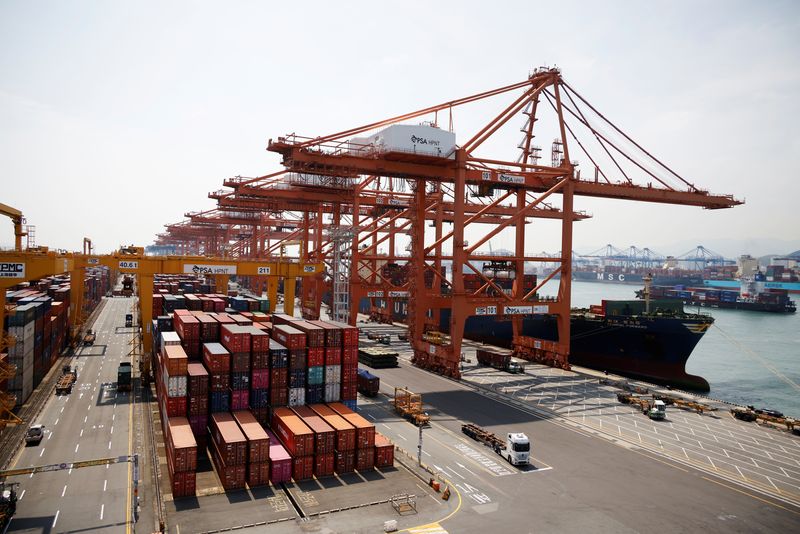South Korea Nov factory activity shrinks for 5th month, but downturn eases slightly – PMI
2022.11.30 20:58
[ad_1]

© Reuters. FILE PHOTO: A general view shows Pusan Newport Terminal in Busan, South Korea, July 1, 2021. Picture taken on July 1, 2021. REUTERS/Kim Hong-Ji
SEOUL (Reuters) – South Korea’s factory activity shrank for a fifth straight month in November but the downturn moderated slightly, a private-sector survey showed on Thursday, possibly suggesting the worst is over for businesses.
The S&P Global (NYSE:) purchasing managers’ index (PMI) for South Korea manufacturers rose to a seasonally-adjusted 49.0 in November from 48.2 in October.
It remained below the 50-mark that separates expansion from contraction for a fifth consecutive month, but has continued to improve from a more than two-year low of 47.3 reached in September.
Output shrank for a seventh month, but the rate of contraction was the mildest in the streak, while new orders fell for a fifth month. Exports declined for a ninth month, though it was the slowest in the current declining cycle.
A fall in orders from some of South Korea’s key export markets was reported to have driven the latest decline with panel members specifically mentioning a slowdown in semiconductor exports, the survey noted.
“Latest survey data provides tentative signs that the sector may have overcome the nadir of the current downturn,” said Laura Denman, an economist at S&P Global Market Intelligence.
Supplier’s delivery times, an indicator of the degree of supply chain disruption, worsened by the least since January 2020, while semiconductor delays were specifically mentioned by a number of respondents, according to the survey.
On the inflation front, input prices rose at a slower pace than in the previous month, while the increase in output prices accelerated to the fastest in four months, sub-indexes showed.
“Concerns surrounding future cost pressures were widespread and not only continued to stifle demand, but also contributed to a further dampening in business sentiment,” Denman said.
Manufacturers remained optimistic over the coming year for output, but the level of optimism fell for a sixth month to the weakest since September 2020.
[ad_2]
Source link








